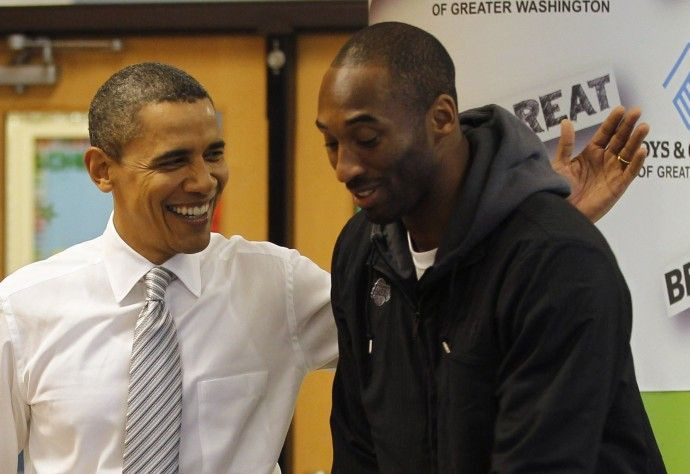Turks, Armenians and Kobe: The Vortex of Fame, Celebrity, Money and Multicultural Clash

The United States – and, more pointedly, Los Angeles, California (Hollywood) – is probably the only place in the world where such a bizarre, unexpected and fascinating juxtaposition of fame, media, wealth, sports, ancient history and multi-culturalism could occur.
Bryant, perhaps the best basketball player in the world and arguably one of the top ten players in history, just signed a two-year endorsement contract with Turkish Airlines to serve as their “global brand ambassador.”
Specifically, Bryant will appear in TV, billboard, print and online advertisements that tout next year’s commencement of nonstop flights between Los Angeles and Istanbul.
Putting aside for a moment that Bryant has no remote connection with the Turkish nation or its people (aside from the fact that basketball is increasingly popular there), there is the little matter of the ancient and historical enmity between the Armenians and the Turks.
Southern California (where Bryant resides and is lucratively employed) happens to have a rather large population of Armenians (at least 700,000) -- and some of them are extremely angry that their local basketball hero has decided to attach his name to the national airline of their intransigent Turkish enemy.
At the core of the Armenian’s grievances – Turkey’s long-standing refusal to admit that its government was responsible for the mass murder of up to 1.5-million (perhaps as many as 2-million) Armenians during the 1915-1923 period in what was then the waning days of the fabled Ottoman Empire.
Armenians have ever since described the killings as a form of genocide.
What does all this have to do with a 32-year-old African-American professional basketball player who probably knows little or nothing about the history of Turkey and Armenia?
Well, for one thing, some Armenian-American groups in California have threatened to boycott Bryant’s team, the Los Angeles Lakers.
He should reconsider his ill-advised endorsement of Turkish Airlines, and, at the very least, go on record condemning Turkey's denial of the Armenian Genocide and calling upon our Congress to pass of the Armenian Genocide Resolution, said Aram Hamparian, the executive director of the Armenian National Committee of America to ESPN.
Hamparian also pointed out that this is not a matter of a private company that Kobe has signed a deal with. It's a state carrier with a heavy government affiliation.
The Armenian Youth Federation (AYF) has declared the decision has caused uproar within the Armenian-American community in the U.S. and especially within Southern California, which boasts the largest population of Armenians outside of Armenia. As victims of genocide at the hands of the Ottoman Turkish government… Armenians are angered that Bryant would sign a contract with a country that denies justice to the victims.
The AYF further urged Bryant to cancel his endorsement deal with Turkish Airlines and affirm his commitment to human rights.
Other Armenians have requested that Bryant use his fame and influence to pressure U.S. House of Representatives Speaker Nancy Pelosi to schedule a vote on a resolution, which would recognize the Armenian killings as genocide.
On the other side of the argument, a Turkish-American group has expressed support for Bryant and condemned Armenian-Americans for threatening a boycott.
The Turkish-American community commends... Los Angeles Lakers star Kobe Bryant for promoting Turkish Airlines, said Günay Evinch, president of the Assembly of Turkish American Associations (ATAA), which is based in Washington-DC. “It is a shame that Armenian extremists would harass athletes who support Turkish brands. Indeed, it is racist. I call upon all sports and travel lovers to support Kobe Bryant and join against racism.”
Of course, Bryant is not breaking any laws, nor is he willfully seeking to alienate part of his fan base in southern California. His only concern is the money he gets (given that his sexual assault case in Colorado from seven years ago almost destroyed his career and endangered his outside commercial endorsement potential).
It is doubtful that any potential boycott by Armenians and their supporters would harm Bryant or the Lakers in any way. Moreover, this “controversy” will likely last only until the next media-hyped controversy comes our way.
Yet, one has to wonder how much money Turkish Airlines is paying him such that it is worth his time and involvement (considering Bryant earns about $30-million per year from the Lakers and untold millions more from other side contracts)?
One also has to wonder why Turkish Airlines selected Bryant as its “global spokesman”? Obviously, Bryant is an extremely famous person with a global reach, yet he carries quite a bit of negative baggage already, which hardly makes him an ideal endorsement figure.
While the Turkish-Armenian enmity will likely never be resolved, perhaps the more pertinent issue here is how insanely celebrity-obsessed U.S. society (and increasingly global society) has become.
Through no real fault of his own, Kobe Bryant finds himself in a thicket of controversy he probably could never have imagined. But he in this vortex specifically because of his fame and celebrity -- he is better known, more popular and certainly better-compensated that the myriad of writers, historians, scholars, intellectuals, statesmen, diplomats, etc., who would be qualified to speak on the Turkish-Armenian subject. But few people, if any, care what they would have to say.
But Kobe certainly grabs our attention.
And incidentally, who are the most famous Armenians in America?
The Kardashian sisters – another product of our cheap celebrity factory culture.
© Copyright IBTimes 2024. All rights reserved.




















